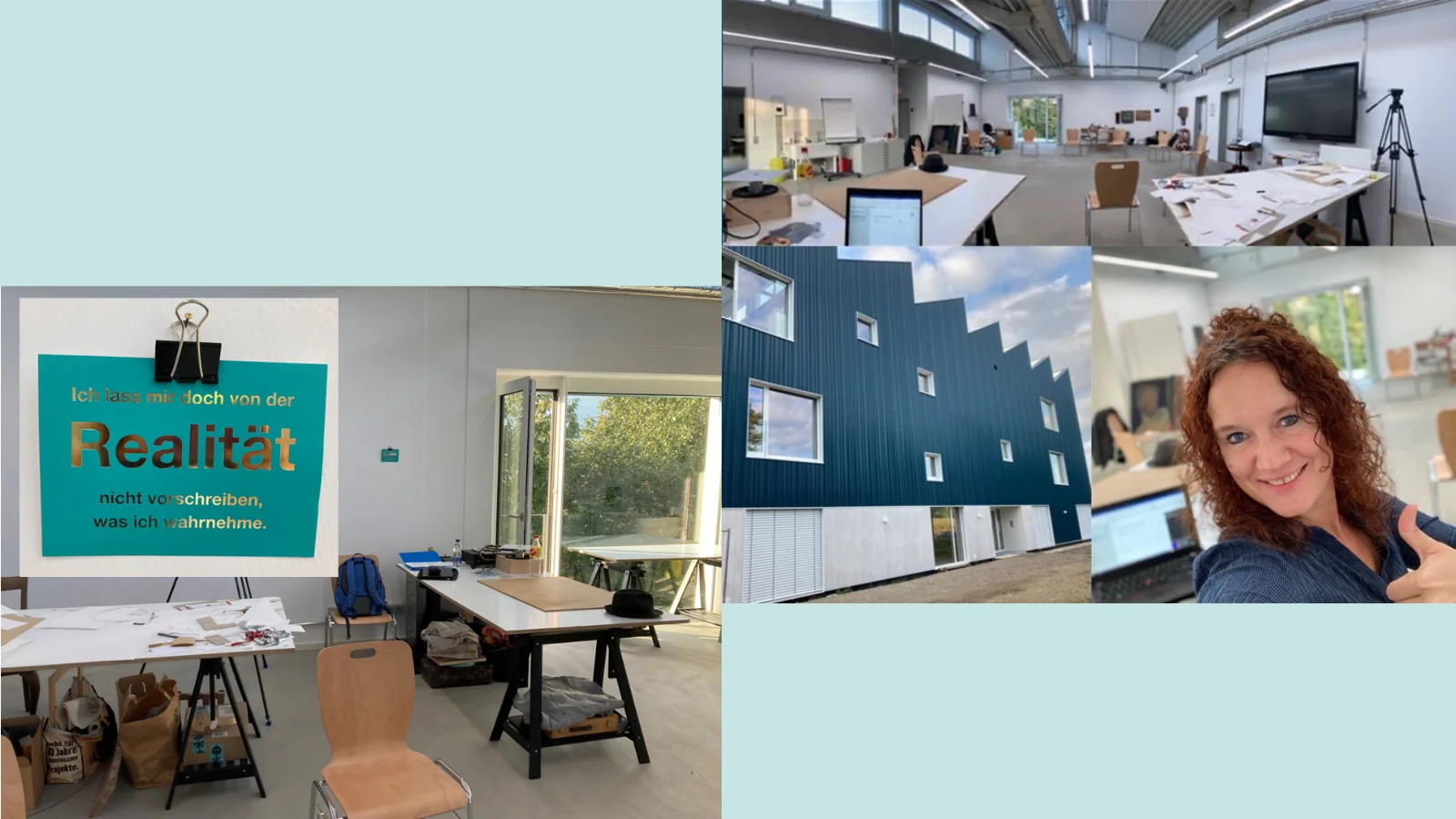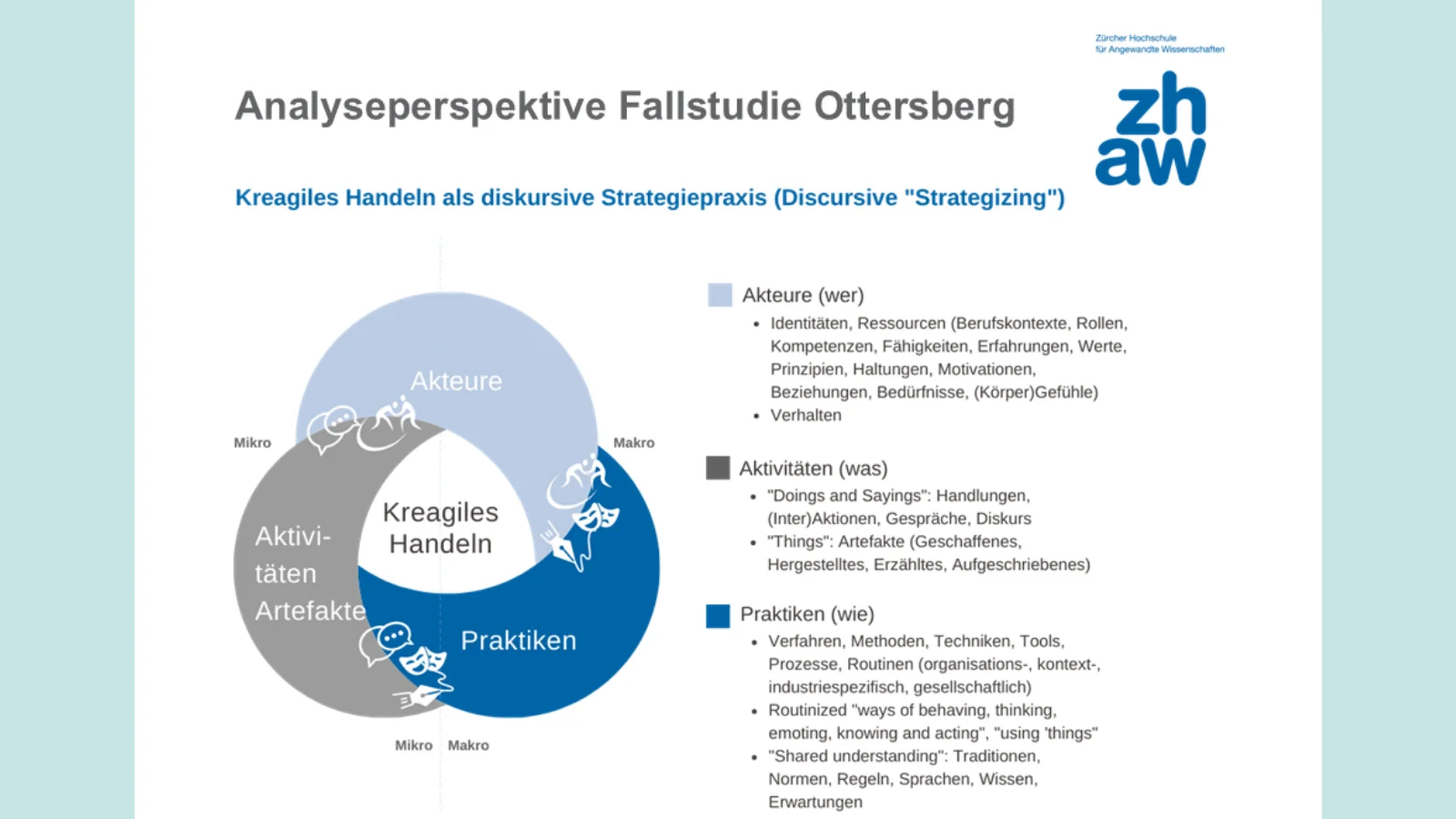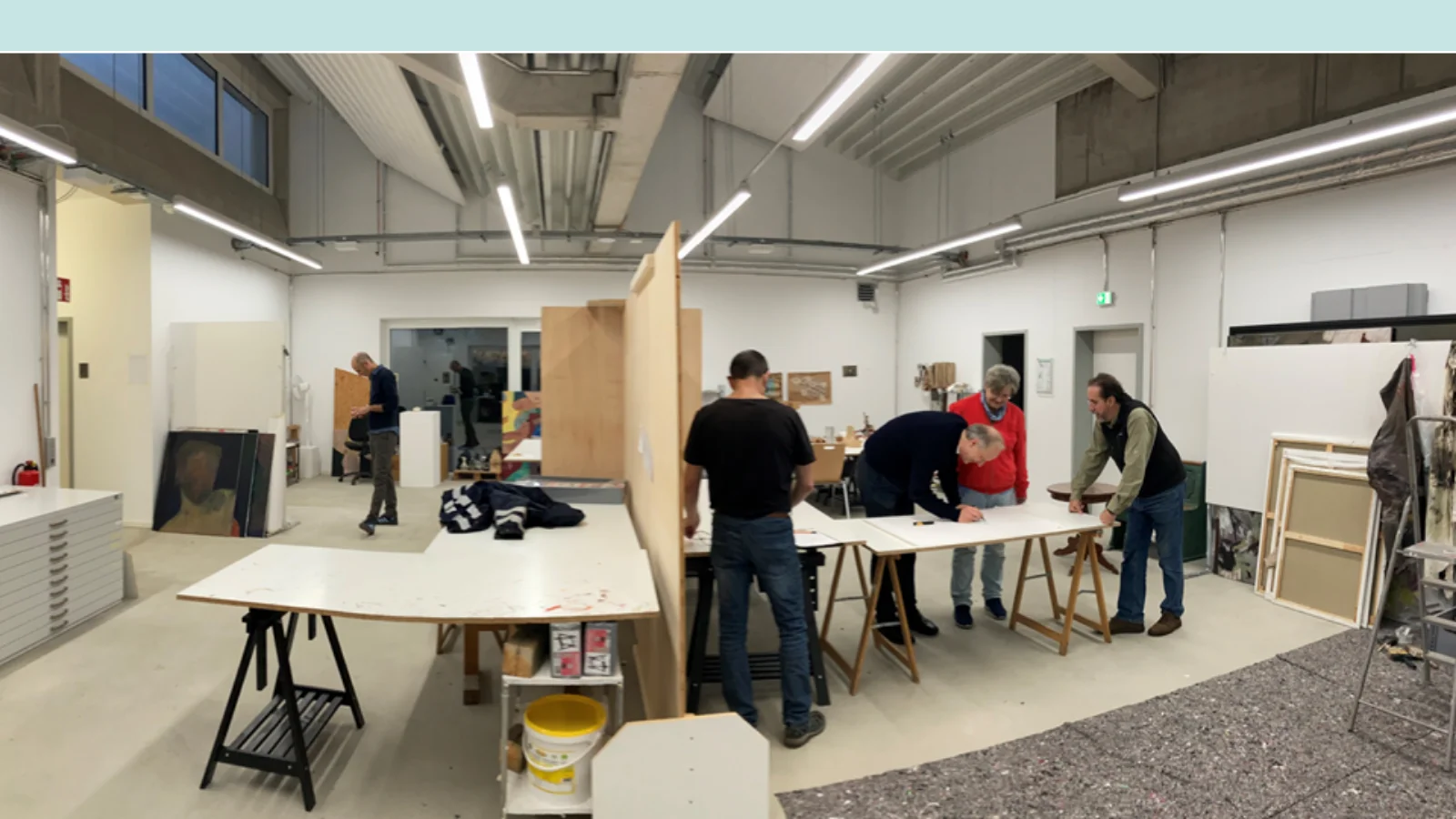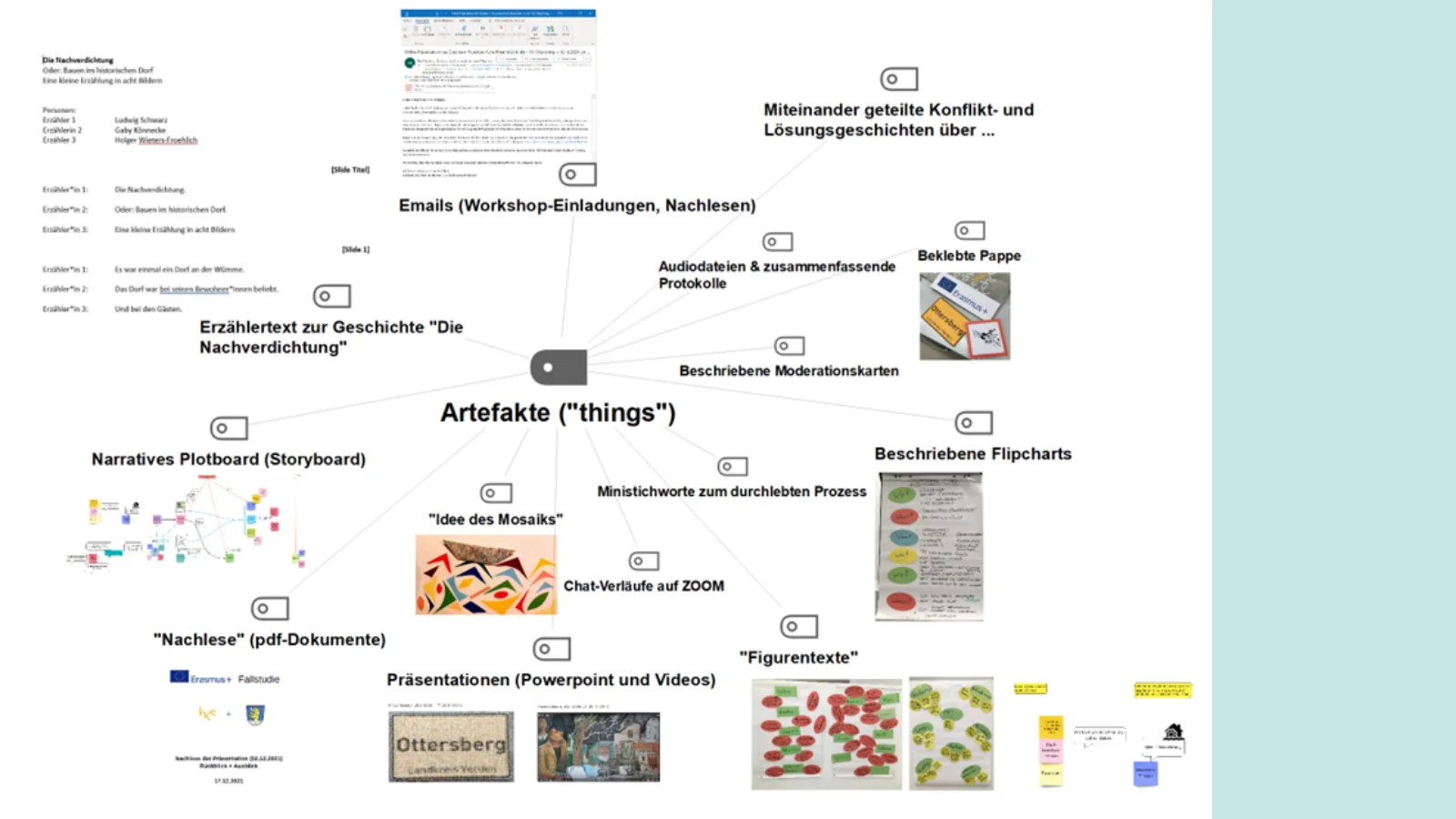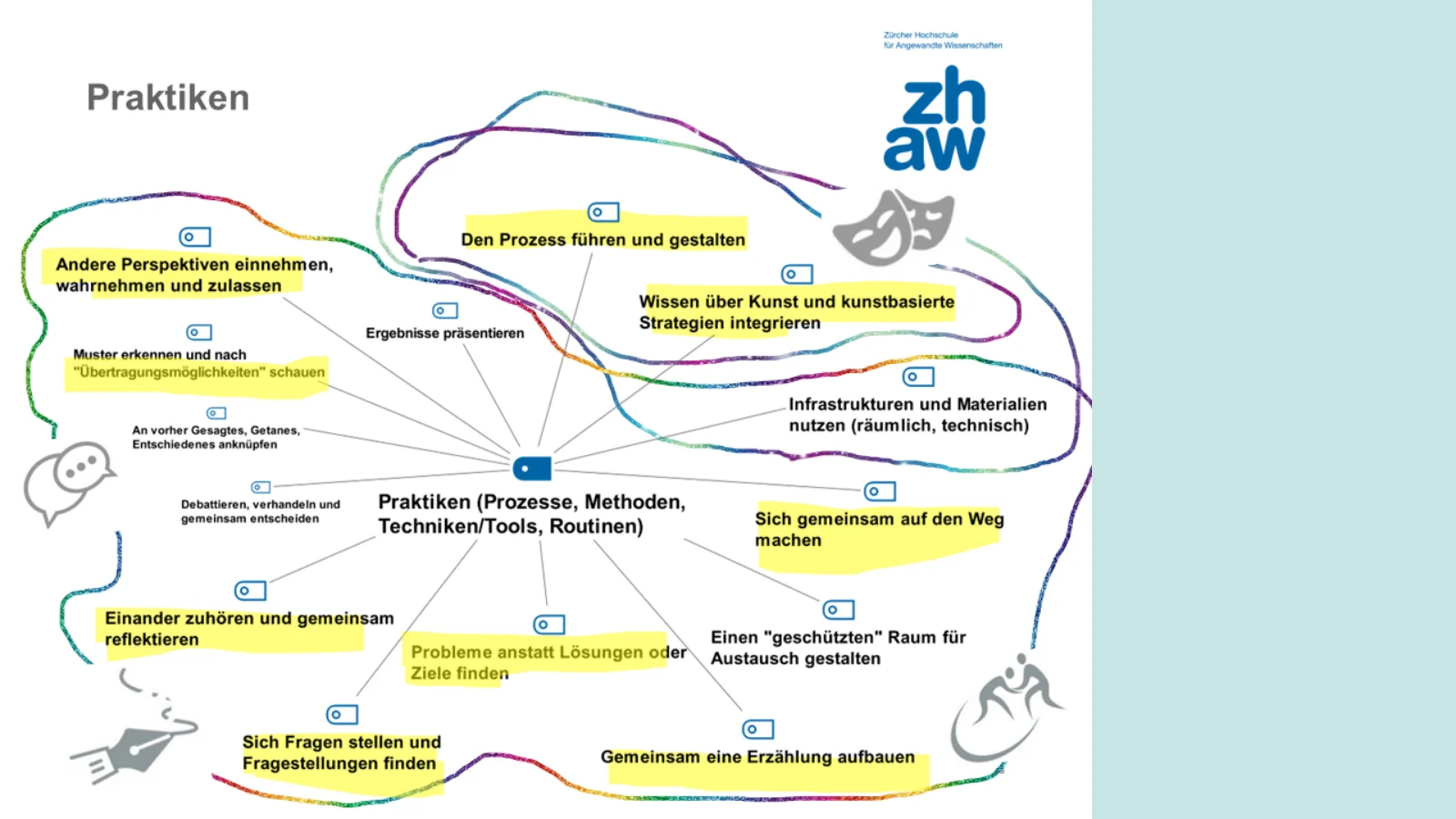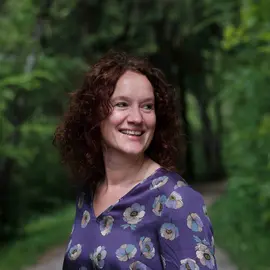Creative Agility – How art-based strategies transform digital and analog communication in organizations
In the Erasmus+ project “Creative Agility”, practitioners, facilitators and researchers are exploring and investigating how art-based strategies transform digital and analog communication in organizations in an international adult education project.

Description
The coronavirus crisis has fundamentally changed our lives, our work, and how we communicate. Existing collaboration processes have been and continue to be put to the test in these technologically disruptive times with ChatGPT and other similar technologies. Proven forms of communication are constantly changing, and the challenge is to maintain quality and depth of content despite the distance. Work and communication processes need to be rethought.
The transformation of organizations under pandemic conditions requires the constant rediscovery, testing, and reflection of practical solution strategies for interacting with one another, which creates uncertainty. Existing business models and fields of action for organizations are under pressure from newly emerging needs.
The development of creative agility is a key competence for successfully navigating analog and digital working environments. Technical skills alone are not enough. Rather, skills are needed to break away from previous routines and structures, to approach new situations in a creative and agile manner, and to communicate effectively. These skills are particularly relevant for managers, employees at all levels, trainers, coaches, and volunteers working at socially relevant interfaces.
As part of the project, the ZHAW, together with adult education partners from Liechtenstein, Germany, and Austria, explored how art-based strategies transform digital and analog communication in organizations.
The aim of the project was to develop a curricular training concept on “creative agility” in the form of a modular, art-based, knowledge-oriented, and methodical-didactic toolkit.
In addition, pilot training courses (market tests) were conducted in Europe and Switzerland, and experiments with digital and analog learning formats were carried out.
The ZHAW was responsible, among other things, for evaluating a case study on the development of guidelines for implementing artistic interventions in organizational contexts. The case study took place in a municipal structure (Ottersberg near Bremen, Germany). Decision-makers from the council/politics and administration were involved, as well as artistic actors from the University of Arts in Social Contexts Ottersberg. The chosen artistic intervention was “narrative research,” a theater-based method that uses scenic sketches to create different communication situations.
The EU consortium consisting of kubus Kulturvermittlung (LI), the University of Arts in Social Practice HKS Ottersberg (DE), the SPES Future Academy in Schlierbach (A), and the ZHAW has created a forward-looking educational offering through this collaboration, which makes a valuable contribution to the transformation of digital and analog communication in organizations.
In addition to the project team members listed below, students enrolled in master's or bachelor's degree programmes at the ZHAW School of Applied Linguistics also contributed to the project: Raphaela Balli, Aline Baumgartner, Andriana Brodbeck, Christina Bork, Tamara Bütler, Mario Ernst, Gian Hedinger, Hanna Lena Hitz, Samira Imhof, Tabea Jacober, Linda Käsbohrer, Seraina Kaufmann, Pascal Kobluk, Caroline Lahusen, Franziska Lurk, Tessa Morshuis, Alexandra Müller, Pascale Odermatt, Tiziana Pirelli, Adina Steimer, Bianca Stöcklin, Jonatan Turegard, Miriam Weber, Sofie Wirth and Lena Zweifel.
Key data
Projectlead
Co-Projectlead
Dagmar Frick-Islitzer (kubus Kulturvermittlung)
Project team
Dr. Hellmut Riediger, Cédric Luisier, Xenia Helmboldt, Michael Uhl (Hochschule für Künste im Sozialen HKS Ottersberg), Peer Holthuizen (Hochschule für Künste im Sozialen HKS Ottersberg), Prof. Dr. Ralf Rummel-Suhrcke (Hochschule für Künste im Sozialen HKS Ottersberg), Peter Jungmeier (SPES Zukunftsakademie), Birgit Appelt (SPES Zukunftsakademie)
Project partners
kubus Kulturvermittlung; Hochschule für Künste im Sozialen HKS Ottersberg; SPES Zukunftsakademie
Project status
completed, 06/2021 - 12/2023
Institute/Centre
Institute of Multilingual Communication (IMK); Institute of Multilingual Communication (IMK)
Funding partner
Movetia / Schweizer Programm zu Erasmus+: Erwachsenenbildung (Strategische Partnerschaft); Erasmus+; AIBA - Agentur für Internationale Bildungsangelegenheiten
Project budget
322'000 EUR
Further documents and links
- Website Creative Agility & CreAIgile Literacy
- Blog posts in view of Creative Agility
- YouTube channel Creative Agility ZHAW
- Project documentation Movetia-Project "Transformation by Creagilization - Designing the Future with Creagile Skills & AI Literacy" (CreAIgile Literacy) (2024-2026)
- Project information on Real-world Laboratory for Future Skills - Living Lab Creative Agility & Futures Literacy (interdisciplinary experimental space)
- All project results can be found in the downloads section of the website
- Book a training, workshop, living lab format on creative agility
Publications
-
Creative agility and futures literacy as transdisciplinary innovation for sustainable futures : evaluating a higher education living lab with the CAIFL competence framework
2026 Borghoff, Birgitta; Hess, Jeannine
-
Don’t optimize – creAIgilize! : how creative agility can inspire a responsible use of AI
2025 Borghoff, Birgitta; Lehr, Caroline; Hunziker Heeb, Andrea; Moog, Petra; Barbeara Campagna, Angela; Baumast, Annett
-
Creative reflection spaces in human-machine collaboration : cultivating non-cognitive competences in BANI times
2025 Borghoff, Birgitta
-
Transformation by Creagilization – designing the future of now with “Creative Agility”
2024 Borghoff, Birgitta; Boogen, Nina
-
Creative Agility for Good Health and Well-Being
2024 Borghoff, Birgitta
-
Future Skill «Kreative Agilität» : kreagil navigieren in und durch überfordernde Zeiten
2023 Borghoff, Birgitta; Frick-Islitzer, Dagmar; Moog, Petra; Luisier, Cédric; Riediger, Hellmut; Uhl, Michael; Jungmeier, Peter
-
Future Skill «Kreative Agilität» : kreagil navigieren in und durch überfordernde Zeiten
2023 Borghoff, Birgitta; Frick-Islitzer, Dagmar
-
Plasmare i processi di trasformazione organizzativa grazie all’agilità creativa : testo di riflessione : comunicazione, linguaggio, storytelling
2023 Borghoff, Birgitta; Appelt, Birgit
-
Concevoir de nouveaux processus de transformation organisationnelle avec l’agilité créative : créatexte : communication, langue, storytelling
2023 Borghoff, Birgitta; Appelt, Birgit
-
Mit Kreativer Agilität organisationale Transformationsprozesse gestalten : Impulstext : Kommunikation, Sprache, Storytelling
2023 Borghoff, Birgitta; Appelt, Birgit
-
Shaping organizational transformation processes with creative agility : impulse texte : communication, language, storytelling
2023 Borghoff, Birgitta; Appelt, Birgit
-
"What is Creative Agility?"
2022 Borghoff, Birgitta; Frick-Islitzer, Dagmar
-
”Kreative Agilität”: Kunstbasierte Strategien als narrative Praxis in der organisationalen Transformation : Beiträge der Angewandten Diskurslinguistik im Spannungsfeld von Kunst und Kommunalpolitik
2022 Borghoff, Birgitta
-
Kreative Agilität entdecken und erleben
2022 Borghoff, Birgitta
-
Mit Kreativer Agilität organisationale Transformationsprozesse gestalten
2021 Borghoff, Birgitta
-
Die «Narrative Recherche» im kommunalen Kontext : eine diskursanalytische Case Study
2021 Borghoff, Birgitta
-
Die «Narrative Recherche» im kommunalen Kontext : eine diskursanalytische Case Study
2021 Borghoff, Birgitta
